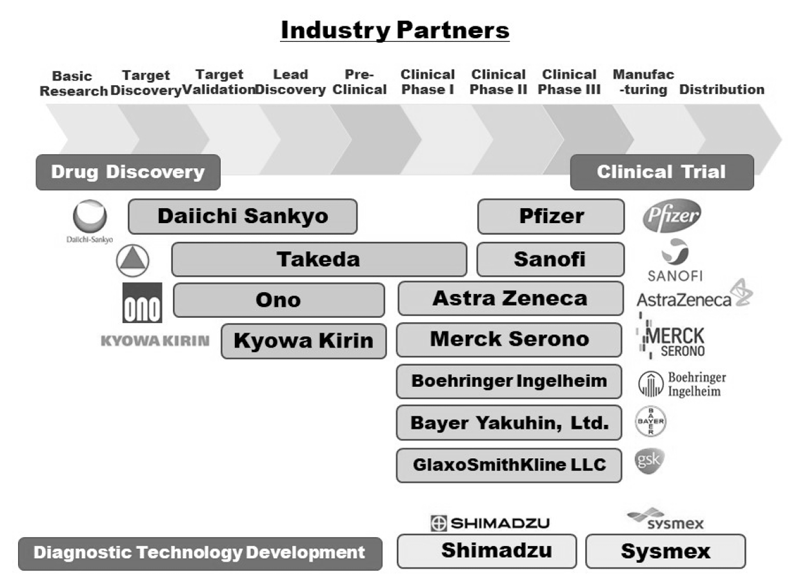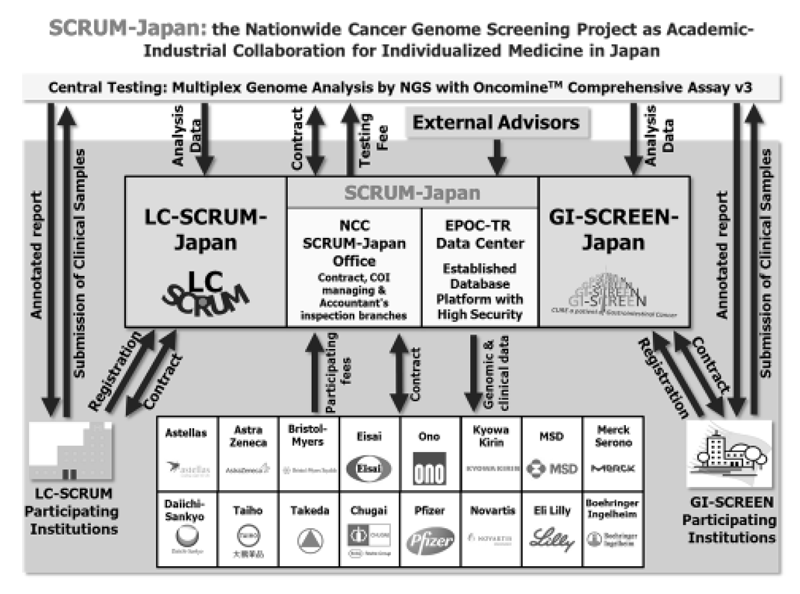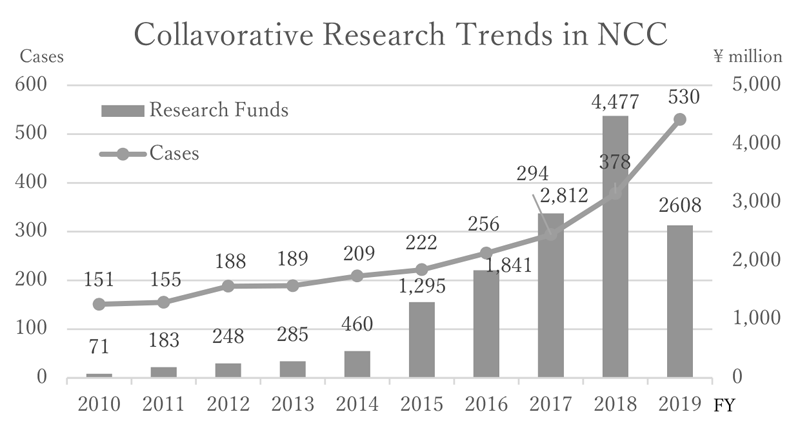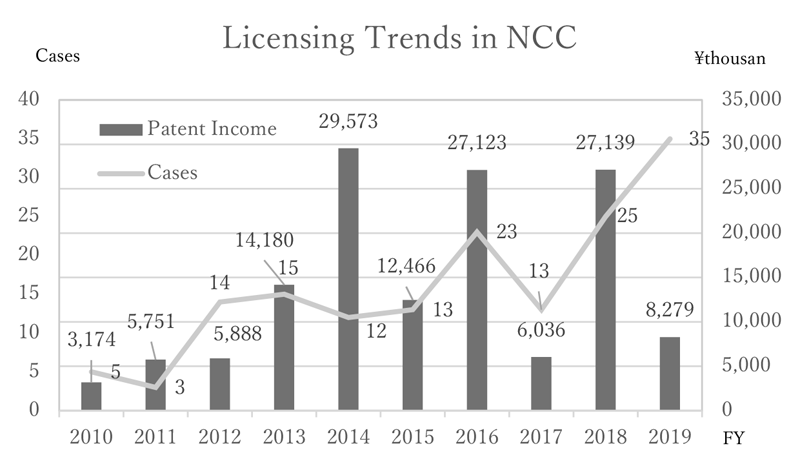Center for Research Administration and Support (CRAS)
Teruhiko Yoshida, Masaki Shibatuji, Nobuko Ushirozawa, Sachie Senda, Yurina Kudo, Ranna Okada, Nodoka Itaya, Fumie Suzuki, Kiyoka Nagayama, Yuko Yamada, Jinko Sato, Yuichi Amanuma, Miko Ito, Masaki Yamamoto, Yuji Shinoda, Genta Ono, Yukari Nakayama, Yuichi Nakamura, Hiromi Nakagawa, Ryu Aoyama, Chieko Yano, Ryoko Noda, Kazunori Aoki, Kazuhiko Aoyagi, Taro Shibata, Gakuto Ogawa, Yasue Kojima, Megumi Kubo, Aya Kuchiba, Junki Mizusawa, Masashi Wakabayashi, Shogo Nomura, Kenji Matsui, Tsunakuni Ikka, Noriko Yamashita, Waki Toya, Haruka Nakada Tomoko Seki, Satoko Arai, Tomoko Ishida, Norie Enomoto, Yayoi Ofuji, Shinae Kamiya, Sanae Kawada, Kuniko Takahashi, Chiaki Nishikawa, Mariko Nishima, Haruka Matsuo, Chiemi Notake, Rika Oumi, Masahiko Ozaki, Kazuki Sugisaki, Yuki Harada, Sumiko Yajima, Megumi Shimada, Fusako Tai
Introduction
The background and purpose of the creation of the Center for Research Administration and Support (CRAS) was explained by Dr. Tomomitsu Hotta, the President of the National Cancer Center (NCC), in NCC News 2014 Vol.5 No.3 (in Japanese). Briefly, since its foundation in 1962, the NCC has added several new segments and organizations to evolve as a comprehensive cancer center. Because each segment needed its own research infrastructure, support activities in the NCC had become fragmented and scattered, with the possibility of gaps and redundancies. Dr. Hotta approached the Strategic Planning Bureau and assembled the “NCC New Vision” in 2014, in which he proposed integration and communication for various research support functions in the NCC. The CRAS was created in response to the 2014 Vision.
The CRAS was established on July 16, 2014. The starting members of the CRAS were approximately 160 staff, who together offered diverse functions and specialties, ranging from research fund administration, alliances with the private sector, intellectual property, clinical research coordinators and data managers, monitoring and audit, biostatistics support, offices for research ethics (IRB), and COI committees.
In 2015, the NCC Hospital (NCCH) and the NCC Hospital East (NCCHE) were certified as Core Clinical Research Hospitals under the Medical Care Act in August and September, respectively.
It was then required that the support functions for clinical research, especially those concerning clinical trials, needed to be operated under the explicit responsibility of a hospital director. As a result, the governance of the Research Coordination Division, Research Promotion Division and Regulatory Science Section of the CRAS has now moved to the Clinical Research Support Offices, which belong to the common departments of each hospital. In January 2017, these divisions and section were officially separated from the CRAS in the NCC organization, and their 2016 annual reports are found in the respective hospital’s chapters.
Another major reformation of the CRAS in 2017 was the establishment of the Bioethics Division by expanding the former Bioethics Section. The Clinical Trials Act was promulgated on April 14, 2017 and came into effect on April 1, 2018. The division worked very hard and efficiently in the period of the transitional measures for the law. Despite the serious scarcity of human resources in the specialty field, the NCC has been endowed with strong staff, who have been contributing to work not just inside the NCC but also all over Japan with regard to research ethics-related capabilities.
In 2018, the concept of the RA (research administrator) system in the NCC was discussed in the CRAS and proposed to the NCC headquarters.
In 2019, several renovations have been made in the NCC research ethics review systems, including abolition of the Gene Therapy Clinical Research Review Committee in response to the enforcement of the Regenerative Medicine Law and the Clinical Trials Act. Preliminary review meetings were also removed from the ethics guideline-based research protocols to make the review process more efficient thanks to the deployment of research ethics liaison staff in each section of the NCC. Moreover, the “Working Group for Proper Conduct of Ethics Guideline-based Research” was formed to draft the rule of submission of final and progress reports required in the guidelines. The WG discussed the very definition of “End of Research” and other key concepts in the diversity of the research across the various sections of the NCC, and the new rule was approved by the NCC Executive Committee.
(Future prospects)
The NCC embarked on the new era under the leadership of a newly appointed President and Directors of the NCC Research Institute (NCCRI) and both hospitals (NCCH, NCCHE) on April 1, 2016. The Vision and high-priority research targets have been redefined, and re-organization is in progress in various parts of the NCC. However, as is repeated in the Annual Report each year, the core concept of the CRAS stays unchanged to contribute to the NCC mission by promoting organic unity of the NCC as a whole. It is particularly important to respect differences in roles and characteristics of each NCC campus, Tsukiji and Kashiwa, to make the most of their strong points to maximize the research output of the NCC. Collaborations with the Clinical Research Support Offices of both hospitals remain crucial, and the CRAS aims to contribute to bringing the various sections together in the NCC.
In 2020, it is expected that a new organization, the Japan Health Research Promotion Bureau (JH), will be officially launched to promote research collaboration among the 6 National Centers. As the mission and functions of the JH appear to have lots in common with those of the CRAS, our prospects in 2020 and beyond include productive interaction and collaboration with the JH.
1. Research Administration Division
1) Research Administration Section
The Research Administration Section is a central office in charge of various administrative work related to research funding including application and reporting. The major external funding sources of the NCC are competitive grants from the government and government-supported agencies, such as the Ministry of Health, Labour and Welfare (MHLW), the Japan Science and Technology Agency (JST), and the Japan Agency for Medical Research and Development (AMED).
This section also serves as an administrative office for the NCC Research and Development Fund, which is provided directly from the government to the NCC for fulfillment of its mission as the national core institute of cancer control. This section organized seminars regarding research funding and its rules to prevent financial misconduct.
(Future prospects)
The Guidelines for Managing and Auditing Public Research Funds at Research Institutes was updated by the Ministry of Education, Culture, Sports, Science and Technology (MEXT) in February 2014 and adopted by the MHLW in March 2014. This section serves as a compliance promotion office of the Guidelines and has established a new system for research fund administration, which is fully compatible with the new Guidelines.
2) Research Alliance Section and Intellectual Property Section
The Research Alliance and Intellectual Property Section (RAIP) promotes transitions of the NCC’s research to industry by unitarily managing collaborative research alliances and the utilization of intellectual properties (IPs).
1. Alliance with private sectors
RAIP has been helping the NCC establish worldwide comprehensive collaborative partnerships with major pharmaceutical companies and academic institutions. With the addition of a new collaborative framework this year, 13 comprehensive collaborative alliances are active between the NCC and industry partners (Fig. 1). RAIP has been also supporting a nationwide genomic screening project (SCRUM-Japan “Cancer Genome Screening Project for Individualized Medicine in Japan”), which was launched in March 2016. Currently, 16 pharmaceutical companies and academic institutions across Japan have joined the project (Fig. 2). The collaborative research and research funds that RAIP manages have been increasing each year (Fig. 3). In 2019, the number of collaborations was 530, and the research funds reached 2.6 billion yen.
Figure 1. Comprehensive Research Alliance


Figure 3. Collaborative Research Alliances

2. Intellectual property management
RAIP encourages the NCC’s researchers to license out IPs derived from their research at an early stage to partner with companies who can work together towards realization of their research. For those IPs, the NCC essentially bears the cost, RAIP constantly reviews the value of the IPs and dismisses those which cannot find sponsors within a certain period. Through RAIP’s efforts to allocate the NCC’s resources to IPs with commercial value, the NCC has been successful in sustaining a positive turnout of IP management for years (Fig 4).
Figure 4. Intellectual Property Management

3. Human resource development and education
RAIP hosts educational seminars on essential IP knowledge for NCC faculties at least twice a year. Members of RAIP are encouraged to participate in seminars and conferences to update their knowledge on IP laws, regulations, and guidelines as well as scientific technologies, all of which are necessary to promote the academic-industrial alliances. From time to time, RAIP utilizes consultations with experts, such as lawyers and patent attorneys, to solve problems and to gain practical experience.
(Future prospects)
Under the NCC’s vision of “commitment to providing the best possible cancer treatment and care through relentless partnership with the community”, RAIP will keep supporting the creation of effective and innovative collaborative research frameworks which develop into fruitful research partnerships. RAIP will continue to play key roles in assisting the NCC with making decisions on its IP management.
3) Research Administrators
Research administrators (RAs) have supported translating research outcomes into practical applications based upon a comprehensive alliance with companies. Candidate compounds for clinical development have been provided by collaboration with business enterprises. As part of the Tsukiji TR Board’s activity, RAs have conducted an informational meeting targeted at pharmaceutical companies to introduce the bioresources, analytical technologies and TR/rTR supporting system in the NCC to promote co-clinical studies in cooperation with companies. RAs also helped with the document preparation for a national center performance evaluation.
(Future prospects)
RAs promote the acquisition of large competitive research funds through the reinforcement of collaboration between organizations in the NCC, and also promote the translation of innovative research in the NCC to clinical diagnostic and therapeutic development and to patient care through four major mechanisms: the NCC Seeds Selection Committee, comprehensive alliances with leading companies, participation in the academic Drug Discovery Network, and establishment of NCC spin-off venture companies.
2. Biostatistics Division
Biostatistics Division has a role of responsibility in study design, analysis, interpretation and publication, especially in JCOG and EPOC clinical trials and the investigator-initiated clinical trials which are led by investigators in the NCC Hospitals. We have also committed ourselves to establish an infrastructure to support the clinical trials in the NCC Hospitals. Furthermore, we have been actively involved in collaborative relationships with the NCC Research Institute and the Center for Public Health Sciences.
We provided 14 introductory biostatistics lectures for investigators in the NCC to learn and review the elementary aspects of biostatistics. We newly provided lectures about the implementation of statistical analysis with analysis software. We had a cumulative total of 519 participants. In addition, we hosted two biostatistics lectures to cover the important biostatistical side of various application fields and a cumulative total of 44 investigators participated. The lectures were open to any applicants from outside institutes.
Furthermore, we have provided biostatistical consultation and expertise, which supports NCC investigators working on basic, translational, clinical and epidemiological research. We offered advice for about 115 problems (78 in Tsukiji campus and 37 in Kashiwa campus) for which biostatistical consultation was requested from April 2019 to March 2020.
In addition, we provided an internship program for 17 graduate students from a graduate school of the University of Tokyo (the Biostatistics and Bioinformatics Course, Graduate School of Interdisciplinary Information Studies).
(Future Prospects)NCC has a critical role for providing clinical service, education, conducting research and making policy recommendations/proposals, which are all required to make a decision on the basis of solid and scientific evidence from reliable data and information. The mission of the Biostatistics Division is to contribute to providing the best evidence and to the improvement of clinical practice and public health through the development and application of statistical methods. The Biostatistics Division is expanding on its independent and collaborative research in a range of areas, including prevention and policy recommendations/proposals, as well as treatment development. This year, we have made a particularly effort to build effective relationships with the investigators at the NCC Research Institute and the Center for Public Health Sciences. Collaborative projects have been launched, including the evaluation and implementation of medical technology with artificial intelligence. Collaboration on epidemiologic studies have motivated us to develop statistical methods to get deeper insight into etiological mechanisms or public health impact. We are working on promoting a cooperative framework with outside experts in statistics/biostatistics. We are opening up a new methodological research area in which a mathematical approach will serve as a solid basis.
3. Bioethics Division
The Bioethics Division has a mission of providing information, education and training programs on research ethics including human subject protection, conflict of interests (COIs) management on clinical research, and the administration of institutional research ethics review boards (IRBs). In addition to this mission, each of the following three Sections under the Division has its own specific responsible roles as described below.
1) Bioethics and Healthcare Law Section
The Bioethics and Healthcare Law Section (BHLS) provides research ethics consultation services (RECS) to researchers, research supporters, IRB members, and other concerned parties or groups of people. The RECS have an advisory function, which does not hold any compulsory or binding force and therefore differs from the roles of the IRBs, so as to give instructions and advice in terms of ethics on how to handle and solve ethical and sometimes legal issues arising in each human research study. The RECS therefore go sometimes beyond regulatory compliance. In FY2019, the BHLS held 165 consultations (67 at Tsukiji campus, and 98 at Kashiwa campus), which involved issues regarding the Clinical Trial Act (7), governmental ethical guidelines (153), and other matters (5). In addition, the BHLS held several educational seminars for both NCC and non-NCC researchers and/or IRB staff.
(Future Prospects)
The BHLS will continue providing and promoting the RECS as well as offering educational materials on research ethics, so as to enhance ethical the conduct of human subject research. In FY2020 in particular, as the two governmental ethics guidelines currently in effect - The Ethical Guidelines for Medical and Health Research Involving Human Subjects and The Ethical Guidelines for Human Genome/Gene Analysis Research - are going to be consolidated into one new set of guidelines at the end of the fiscal year, the BHLS will prepare itself to adjust to the new guidelines.
2) Human Research Protection Section
The Human Research Protection Section (HRPS) serves as the administrative offices for the various types of IRBs for human subject research, including the certified review committees defined by the Clinical Trials Act (Act No. 16 of April 14, 2017).
The accomplishments of the reviews by the IRBs at the NCC in FY2019 included 1,462 active research projects and 313 new research plans by NCC faculty members, while a total of 12 new research plans by researchers outside of the NCC were requested for review.
(Future Prospects)
The HRPS will continue working, in cooperation with the NCCH’s and the NCCHE’s Ethical Review Support Sections, to ameliorate the NCC’s whole ethics review processes toward more appropriate and efficient ways to achieve goals. Particularly in FY2020, the HRPS will adjust the institutional ethics review system for the abovementioned newly-coming consolidated guidelines, and will provide the renewal procedure for certification of the certified review committees defined by the Clinical Trials Act.
3) COI Management Section
The COI Management Section (COIMS) is the administrative office of the COI Review Committee on Clinical Research at the NCC, in addition to responding to COI-related inquiries from researchers. The targets of the COI reviews are individual researchers and research projects using public research funds, but each member of various committees at the NCC also undergoes the COI reviews.
In FY2019, the COIMS managed 2,084 researchers’ COI reviews in 117 investigator-initiated clinical trials under the Pharmaceutical Affairs Law, and 802 researchers’ COI reviews in the 93 research projects under the non-binding governmental ethical guidelines; we also provided consultations for 14 inquiries from other departments at the NCC.
(Future Prospects)
The COIMS will continue to strive for efficient, high-quality management of COIs, as well as proving the latest information on the COI standards for researchers and committee members. Particularly in FY2020, the COIMS will aim to interlock the COI format of the Clinical Trials Act with the institutional COI management system, as well as to enrich the homepage for the COI management.
